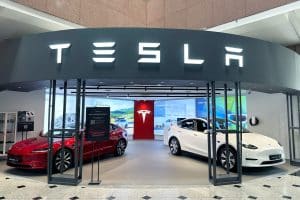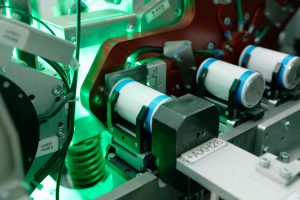- 🚗 Nissan has joined ChargeScape, a joint venture with BMW, Ford, and Honda, to enhance EV-to-grid integration.
- 💡 ChargeScape’s software helps manage grid demand and can return power to the grid when necessary.
- 💰 EV owners can earn financial rewards by charging flexibly through ChargeScape’s platform.
- 🔌 Nissan’s commitment to bidirectional charging continues with its Leaf EVs, pioneers in exporting power back to the grid.
- 🌐 ChargeScape is developing virtual power plant programs to sell excess energy back to the grid in multiple markets.
- 🤝 Nissan and Honda have also pursued a separate partnership focused on EV development and automotive intelligence.
The automotive industry is evolving at an unprecedented pace, with electric vehicles (EVs) at the forefront of this transformation. In a recent development, Nissan has joined the joint venture ChargeScape, created by BMW, Ford, and Honda, to push the boundaries of EV-to-grid integration. This partnership signifies a pivotal move towards a more sustainable and cost-effective energy landscape. Let’s delve into what this collaboration means for the future of electric vehicles and energy management.
The Role of ChargeScape in EV-to-Grid Integration
ChargeScape has been established as a platform to address one of the critical challenges in the electric mobility ecosystem: the integration of electric vehicles with the power grid. The company’s software is designed to manage the flow of electricity between the grid and EVs. Here’s how ChargeScape is making its mark:
- Grid Demand Management: By connecting with electric vehicles, the software can optimize the flow of electricity based on real-time grid conditions. It can temporarily reduce the charging rate during peak demand and manage vehicle-to-grid functionalities, allowing EVs to feed electricity back to the grid when needed.
- Enhanced Flexibility for EV Owners: ChargeScape offers a platform where EV owners can earn financial rewards by charging their vehicles during off-peak hours, thus encouraging more flexible and sustainable charging habits. This system not only benefits individual vehicle owners but also contributes to overall grid stability.
Nissan’s Pioneering Role in Bidirectional Charging
Nissan has long been a leader in the electric vehicle market, with its Leaf model being one of the first EVs capable of exporting power back to the grid. The company’s commitment to bidirectional charging technology is resolute. By joining ChargeScape, Nissan is reinforcing its position and continuing to innovate in this domain. Here’s why bidirectional charging is transformative:
- Energy Backup: Bidirectional charging enables EVs to serve as mobile power stations, providing backup electricity to homes and even the grid during outages.
- Cost Efficiency: By participating in vehicle-to-grid programs, EV owners can offset their electricity costs by selling excess power back to the grid.
- Environmental Impact: Reducing reliance on traditional “peaker” power plants, which are more expensive and have higher carbon emissions, supports a cleaner and more sustainable energy model.
Virtual Power Plant Programs: A Glimpse into the Future
ChargeScape is developing virtual power plant (VPP) programs, which aim to scale up sustainable energy practices through the collective power of EVs. These programs work by aggregating the stored energy in EVs to support the grid during high demand periods. The markets that ChargeScape is targeting for VPP programs include:
- California: Known for its progressive energy policies and high adoption rates of EVs, making it a natural fit for innovative energy projects.
- Texas: With its substantial energy infrastructure and dynamic energy demands, Texas offers a robust market for testing VPP scalability.
- Other US Markets: Various states are exploring VPP models to enhance grid resilience and support renewable energy goals.
Nissan and Honda’s Broader Partnership
Apart from their involvement in ChargeScape, Nissan and Honda have separately announced a partnership devoted to the development of electric vehicles and advancements in automotive technology. This underscores a broader vision among automakers to collaborate towards smarter and more efficient vehicle solutions.
Conclusion: A Step Towards a Greener Future
Nissan’s partnership with ChargeScape marks a significant step towards integrating electric vehicles more seamlessly with the energy grid. As the automotive and energy sectors continue to intertwine, initiatives like ChargeScape could lead to more robust, flexible, and sustainable energy ecosystems.





